The JATC residential training program runs parallel to the apprenticeship program. A trainee may be accepted into apprenticeship and an apprentice may request placement back into the residential program. Many apprentices get their start in the Residential program, because they want to experience the electrical industry while in the process of applying for apprenticeship. The residential trainee program is a good way to start your electrical career, learn skills and advance in pay even if you are not selected for apprenticeship right away.
Similar to apprenticeship, the residential program is designed to be completed in five years. Trainees receive regular increases in pay, they perform similar tasks to other classifications on the same job sites, and they are required to take classes. Unlike apprentices, trainees do not need to pass an aptitude test, do not interview, are not selected off a ranked list, work off their own pay scale and take classes at night instead of during the day. Trainees finish the program with a Residential Electrician classification, different from an apprentice who will be classified as a Journeyman.
Residential trainees complete the program with 10,000 hours on the job training under the supervision of a qualified journeyman electrician. All job placements are made by the Washington D.C. Joint Apprenticeship and Training Committee and individuals work with contractors who are signatory to Local Union 26. All trainees are required to complete eight modules, 10 classes, over the course of the five years. Please see the schedule below for the wages and requirements of these modules. It is the responsibility of all trainees to understand the reclassification requirements associate with the program. Reference JATC Residential Night Classes for more information on night class training requirements.
Individuals in this program will receive pay increases during the course of the program based on work hours, time spent at that pay level, and successful completion of modules. For a detailed look at the residential trainee program laid out in advancement steps please see the document below, Path from RTP to Residential Wireman.
Those raises are set in the following increments:
| 35% | $12.73/hr. | Probation |
| Completion of 2000 hours O.J.T. and one year. | ||
| 45% | $16.36/hr. | 1st Period |
| Completion of 1000 hours O.J.T. and six months. | ||
| 50% | $18.18/hr. | 2nd Period |
| Completion of 1000 hours O.J.T., six months, and successful completion of first module classes | ||
| 55% | $20.00/hr. | 3rd Period |
| Completion of 1000 hours O.J.T. and six months. | ||
| 60% | $21.82/hr. | 4th Period |
| Completion of 1000 hours O.J.T. and six months. | ||
| 65% | $23.63/hr. | 5th Period |
| Completion of 1000 hours O.J.T. and six months. | ||
| 70% | $25.45/hr. | 6th Period |
| Completion of 1000 hours O.J.T. , six months, and successful completion of second module classes | ||
| 75% | $27.27/hr. | 7th Period |
| Completion of 1000 hours O.J.T. and six months. | ||
| 80% | $29.09/hr. | 8th Period |
| Completion of 1000 hours O.J.T. and six months. |
The rate of pay for an individual who completes more than 10,000 hours of O.J.T., is based on the number of Jurisdictional Electrical Licenses they receive.
| RE | $30.32/hr. | No License |
| Completion of 10,000 hours O.J.T. | Paid Benefits | |
| RW-1 License | RW-2 Licenses | RW-3 Licenses |
| $36.36/hr. Paid Benefits | $36.86/hr. Paid Benefits | $37.36/hr. Paid Benefits |
